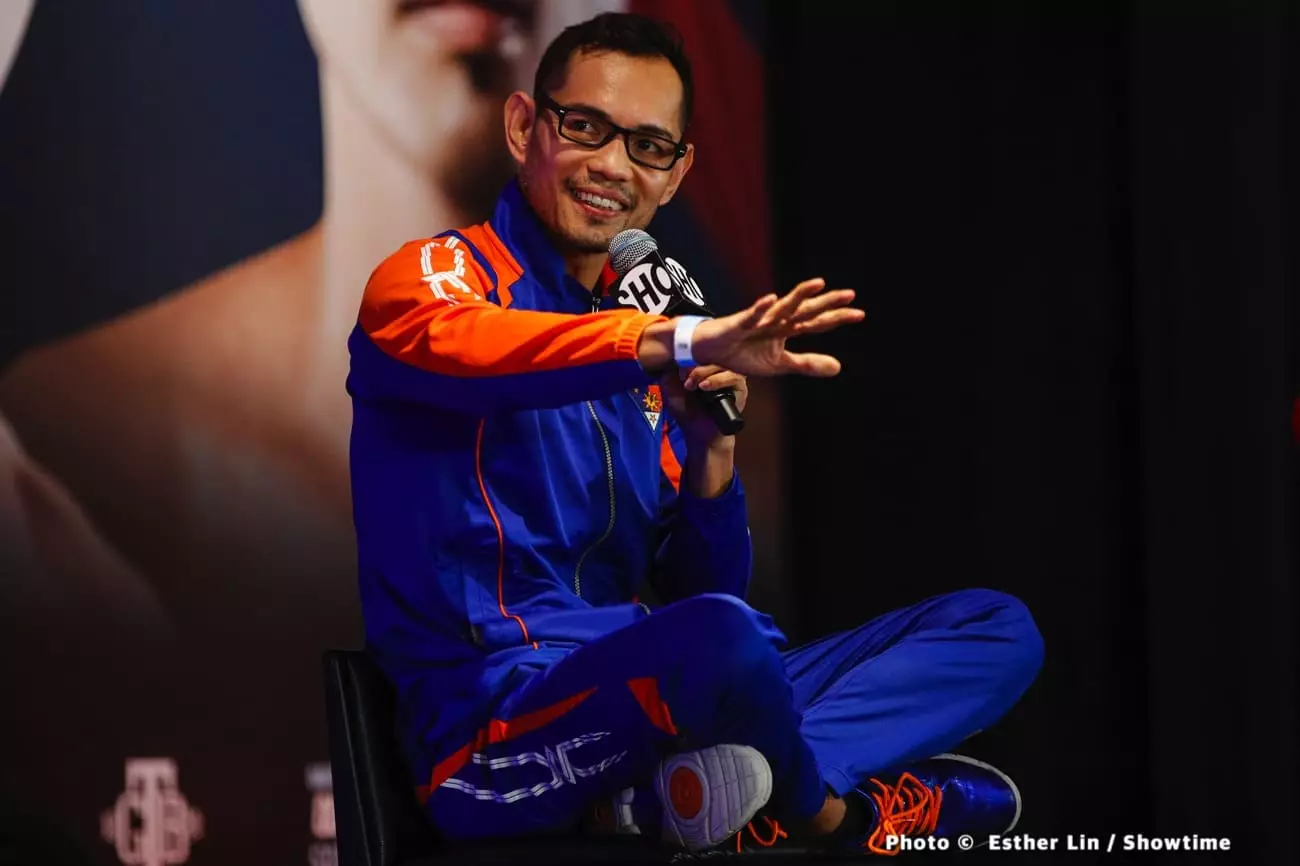With fervor and an unwavering spirit that defies expectations, Nonito Donaire has done what many thought was impossible: he’s made a significant statement about age in the world of boxing. At 42 years old, Donaire’s triumph in the ring against 28-year-old Andres Campos for the WBA interim bantamweight title is not just a victory; it’s a testament to the heart and resilience of an athlete committed to his craft. In a sport generally dominated by youth, Donaire’s performance forces us to reevaluate the boundaries of age and longevity in competitive boxing.
Donaire’s Distinctive Blend of Experience and Skill
Donaire displayed a focused and meticulous fighting style that harkens back to the days when he was touted as one of the premier pound-for-pound fighters in the world. His technical prowess was evident as he navigated the ring against Campos, exhibiting nimble footwork and sharp punches that do not typically come from a fighter in his fourth decade of life. This fight was not merely a matter of throwing punches; it exemplified the essence of strategic boxing. Despite the inevitable rustiness that often accompanies time away from the ring, Donaire managed to demonstrate that experience and skill can often outweigh youthful exuberance.
As the fight progressed into the later rounds, it became clear that Donaire’s strategy was effective enough to secure a win, even after having to face an unfortunate cut due to an accidental head clash. Winning through a technical decision is rarely considered ideal, but in this case, it underscored his dominance over the bout. The judges’ scores—88-83, 87-84, 87-84—confirmed that Donaire was not just fighting to survive but was actively commanding the fight against a younger opponent.
Defying the Odds and Embracing His Passion
In an industry frequently plagued by discussions of athletes’ declines in performance due to age, Donaire challenges this narrative head-on. “I don’t believe in age,” he boldly declared, a statement that resonates deeply in a sport where mental and physical health are paramount. His assertion is compelling and provocative; it suggests that limitations frequently assigned to age may, in fact, be self-imposed barriers rather than inevitable truths. Donaire’s attitude toward boxing exemplifies how a passionate connection to the sport can sustain a fighter, allowing them to excel irrespective of the ticking clock.
His comments reflect a clarity of purpose that is infectious. Donaire expressed not just a desire to fight again but a genuine love for the sport—a sentiment that many fans and aspiring boxers can learn from. This mentality, where passion meets perseverance, opens up discussions about how emotional and mental strengths can play crucial roles in the longevity of athletes’ careers.
The Future: Anticipation of New Heights
As Donaire reflects on his boxing future, it is both exciting and intriguing. The world is abuzz with speculation about what lies next for the “Filipino Flash.” Will he pursue another shot at a world title? Will he face younger fighters hungry to claim prominence in the division? The narrative of an aging champion aiming for yet another belt brings an element of drama that captivates both the avid boxing fan and the casual viewer.
Donaire’s career, spanning over two decades, illuminates the fact that while time waits for no one, it is the burning desire to achieve greatness that propels individuals forward. In a sport where much is decided in the ring, Donaire’s triumph over age and odds gives hope to many athletes pursuing excellence, regardless of the challenges they may face.
In a world where athletes are often relegated to retirement with age, Donaire shines as an icon of timeless tenacity, proving that true champions can continue to rise—no matter the number of years they have accumulated. The boxing community has reason to anticipate what Donaire will do next, and whether he can indeed extend this remarkable chapter of his illustrious career.


Leave a Reply